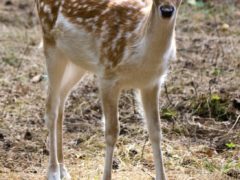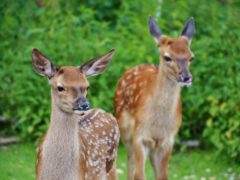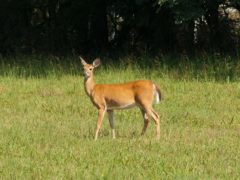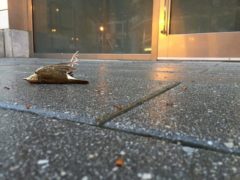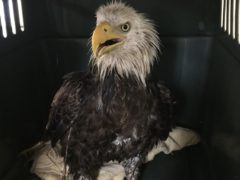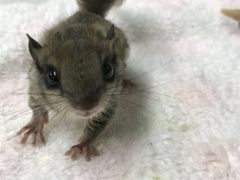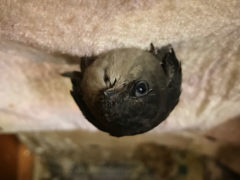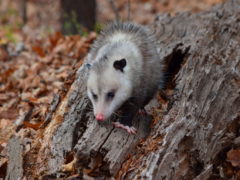Springtime is baby season for many animals, including the White-tailed deer. You may be lucky enough to spot a fawn in or around your yard. If you see a fawn all by itself, that is normal. Does will leave their fawn for the majority of the day to prevent attracting predators to their baby. They will come back at dawn and dusk to nurse. If you see a [Read More …]
Cohabitating with Deer
The most common human-wildlife conflict with deer is when deer eat the plants in someone’s yard or garden. You can humanely discourage deer from eating your plants. With these simple steps, it’s easy to coexist with deer: Plant deer-resistant native plants. These are plants that deer don’t tend to eat. You can contact your local Cooperative [Read More …]
Preventing Deer Collisions
White-tailed deer are common in and around the DMV. The only real hazard that deer pose to humans are vehicle collisions. Keep yourself and the local deer safe by following these steps: Always be alert when driving. Be extra vigilant at dawn and dusk when deer are most active. Use your high beams at night. If you see one deer, [Read More …]
Protecting Migratory Birds
Every year, millions of birds die from colliding with windows. Birds are unable to see glass and some windows are so reflective that birds think they’re flying into reflected scenery rather than a window. Bird-glass collisions occur most frequently during spring and fall migration seasons, and especially at night when birds fly long distances, [Read More …]
Lead Poisoning in Wildlife
Just as lead is toxic to humans, it is toxic to wildlife. Over the past three years, City Wildlife has treated 42 patients confirmed with lead poisoning, including squirrels, opossums, and raptors. In wildlife, lead poisoning usually manifests itself as neurological symptoms, such as lack of balance and coordination, circling, and inability to [Read More …]
Glue Traps: A Sticky Situation for Wildlife
It is the time of year when mice may find their way into your home in search of warmth and food. There are a variety of different mouse traps on the market, including one of the most common: glue traps. But unfortunately, these are also one of the most inhumane. Glue traps are painful and work slowly. They also trap more than just insects and [Read More …]
City Wildlife, Inc. Named “One of the Best” Nonprofits by the Catalogue for Philanthropy
As it Celebrates its 17th Anniversary Serving the Greater Washington Region, the Catalogue for Philanthropy is Proud to Honor City Wildlife, Inc. WASHINGTON, D.C.---5.28.2019---After a careful vetting process, the Catalogue for Philanthropy: Greater Washington has selected City Wildlife, Inc. to be part of the Class of 2019-20. City Wildlife has [Read More …]
Help Wildlife Beat the Heat
It has been a hot summer. During heat waves, we set up cooling shelters for people, but what about the wildlife? Here are some ways you can help wildlife in the summer: 1. Leave out bowls of water. Dehydration is a concern for both humans and wildlife during heat waves. Help wildlife stay hydrated by providing them with water. Bowls of [Read More …]
Birds in Your Chimney?
Do you hear birds in your chimney? They’re probably a family of Chimney Swifts. As their name indicates, Chimney Swifts like to roost in chimneys. Their feet are specifically adapted to grip rough surfaces, like the bricks in chimney walls or the inside of a hollow tree. Chimney swifts are unable to perch on branches or stand on the ground like [Read More …]
The Awesome Opossum: Washington DC’s Pest Control
Virginia opossums are very misunderstood animals. Many people see them as a pest when, in fact, they’re nature’s pest control. Opossums love to eat and they’ll eat just about anything. That’s why you might find one rummaging through your trash can. One of their favorite snacks is ticks. A single opossum can eat up to 5,000 ticks in one season! [Read More …]
- 1
- 2
- 3
- …
- 5
- Next Page »
